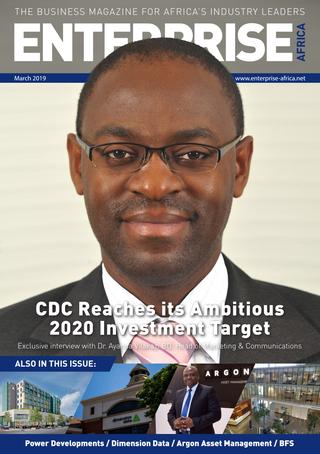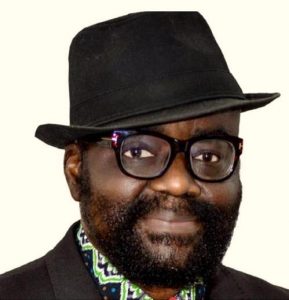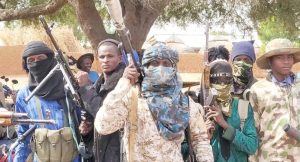South Africa election: Ramaphosa retains electric power as memory of Mandela fades – Tek Portal

Top up to this countrywide election, the party of Nelson Mandela was wracked by interior squabbles and dealing with sustained allegations of corruption versus prime names in the celebration. The economy of South Africa has flatlined. The nationwide electrical power utility is having difficulties to hold the lights on. Voter apathy is at an all-time higher. Continue to, less than the management of President Cyril Ramaphosa, the African Nationwide Congress held on to a sizeable bulk, garnering 57.5% of the vote, according to the Electoral Commission of South Africa.
Their gain is as significantly about historical past as it is about performance — which even Ramaphosa admits has been under par.
The ANC is the liberation social gathering in South Africa and a most important force in throwing off the yoke of the racist apartheid regime a quarter century in the past. That counts for a whole lot, in particular among the more mature generation of South Africans.
The ANC-led government has introduced electrical energy and housing to massive swathes of the place that had none — a highly effective legacy at election time. Tens of millions count on the federal government for social grants and other basic safety nets. Quite or unfairly, several identify this with the ANC.
But one more variable in this election was Ramaphosa himself.
Irrespective of remaining the greatest ANC insider and a deputy president underneath maligned predecessor Jacob Zuma, Ramaphosa appeared to build just more than enough distance from the graft allegations to attractiveness to a broader spectrum of South Africans.
Irrespective of whether the former trade union chief and private sector billionaire can clean up the party with this mandate continues to be an important and open up query. For now, the voters appear to be to be offering him the reward of the doubt.
But the benefits also display that enthusiasm for the ANC is waning — and Ramaphosa need to get worried about the long term.
Radicals locate guidance in world’s most unequal country
This is the ANC’s worst exhibiting considering the fact that 1994. And it represents a constant erosion of support in excess of the previous 3 countrywide elections.
The young technology in South Africa, who have less attachment to the historical past of the ANC, stayed away from the ballot in droves. Thousands and thousands of the so-named “born frees” did not even trouble to sign up to vote.
Lower youth turnout is a worldwide phenomenon. But the quite a few youthful people today in this article really feel they have valid good reasons not to vote. They say democracy hasn’t lived up to its guarantee and close to 50% of youthful South Africans will not have work opportunities.
Regardless of the emergence of a black middle class, South Africa is now the most unequal state on earth.
In accordance to a latest Earth Lender review, South Africa’s richest homes are just about 10 instances wealthier than weak homes. And the all round poverty stages nonetheless comply with racial strains.
That racial disparity and inequality has solid assist for more radical voices in this ballot.
And the most important winners of this election, arguably, are the smaller parties using far more strident political positions.
The Financial Liberty Front (EFF), led by the charismatic and often controversial Julius Malema, pushed a far-still left agenda and promised land and careers for the weak.
To redress the past, land redistribution and restitution was meant to be a priority of the ANC-led federal government. But it has been beset by delays and allegations of corruption.
The EFF obtained support from a extra aggressive stance on land reform — driving the agenda of land expropriation without compensation. They also obtained prominence for a relentless marketing campaign from Zuma that led to street protests and fistfights in Parliament.
In just their 2nd countrywide election, the EFF captured a lot more than 10% of the vote, a sizeable number in a parliamentary procedure like South Africa.
For South Africans fatigued of report stages of inequality and lack of opportunity, the EFF is a clean voice that claims modify — even if their policy choices make international investors and the organization group decidedly anxious.
Ramaphosa seems for Madiba magic
The polarizing procedures have made a mirror — of sorts — in the Afrikaner rights get together the Liberty Entrance Plus. They are promising to secure land rights for their supporters with slogans like “slaan terug,” or “battle back again.”
From a negligible base, they have experienced a good demonstrating.
Possibly the most important “loser” of the main parties is the formal opposition Democratic Alliance (DA), which captured 20.8% of the vote.
Soon after escalating their quantities for various elections, the DA’s aid has stalled — even dropping marginally in the polls.
The DA touted its governance credentials in provinces and metropolitan areas and has been a foremost power in combating corruption and Zuma.
But they missing the ideal foil in Zuma. And Ramaphosa is deeply revered by company and the center class — both section of the DA foundation.
Their displaying will be a deep disappointment for a get together that was seeking to broaden its tent.
For days, social gathering associates cycled as a result of the election center in Pretoria dubbed “The Rock” to spin their scenario. Largely, this vote has gone more than without the need of a main hitch.
It’s the country’s sixth prosperous nationwide election…





